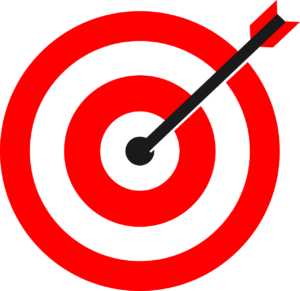Marketing is a complex beast and there are so many different strategies you can follow. One of the most misunderstood has to be cross-channel marketing and I want to demystify the myths and give you the low down on this type of digital marketing.
A Simple Introduction to Cross-Channel Marketing
Cross-Channel Marketing = The combination of multiple marketing channels to produce a cohesive strategy with channels working together via information sharing to effectively target customers throughout their customer journey.
Let’s look at an example. I like using the example of a gardening supply company for some reason so let’s go with that again! Person A does a Google search for “gardening supplies in London”. They come across your website but ultimately leave without making a purchase.
Later, they happen to be on Facebook and see an ad for your guide to the essential gardening supplies and read the blog. This ends with them signing up for your email newsletter.
The next day they receive a promotional email that contains offers on gardening supplies they happened to browse when on your site. This results in them making a purchase!
You can see here how we have several marketing channels (SEO, Social Media, Email) working together to give the customer the info they need and help them progress along the sales funnel. This is the power of cross-channel marketing and it’s something a company with SEO and PPC professional services can help with.
Cross Channel vs Multi-Channel
Do not confuse cross-channel marketing with multi-channel marketing. They are two different things. While the different channels work together and share information in cross-channel communication, the channels in multi-channel marketing do not.
Each channel operates separately and although you can easily maintain your brand image and create a consistent multi-channel campaign, you don’t get the same cohesion or information-sharing benefits.
The Benefits of Cross Channel Marketing
So why bother with a cross-channel campaign and what does it offer to your business? This type of cohesive marketing strategy works on so many levels and it is arguably more effective than multi-channel marketing in the following ways:
Time-effective marketing
By streamlining your marketing efforts using cross-channels you become incredibly time-effective. There is an initial workload but once the channels start working together and complementing each other, your overall marketing strategy becomes way more time-effective.
Cost-effective marketing
With multi-channel marketing, you have to put maximum expense and effort into each separate channel. In contrast, cross-channel marketing can save on costs as the various channels boost each other meaning fewer resources have to be invested in each one.
The ability to capture customers throughout the sales funnel
The sales funnel represents the different points of the customer’s journey and how they progress toward making a purchase. This includes initial awareness, the generation of interest, considering their purchase, and ultimately spending the dollar. A cross-channel campaign allows you to target any level of the sales funnel effectively.
How to Create a Cross-Channel Marketing Strategy
1. Understand your customer and their shopping habits
As with any marketing strategy, cross-channel management starts with understanding your customers, their shopping habits, and how they progress through the sales funnel. Hopefully, you should have a heap of research to utilize but you need to understand their behavior so you can see what marketing channels can work.
2. Define goals for your marketing strategy
With your research sorted, you now have to define overarching goals for your marketing campaign. These must be overarching goals as opposed to goals for the individual marketing channels as this helps with cohesion and cross-channel communication. You can still have individual channel goals, but they should ideally fit into your wider strategy.
3. Choose the marketing channels
With all this information and goals you should be able to see which marketing channels will be effective. It could take a little trial and error but to get you started, here are some of the most popular digital marketing channels:
- SEO
- Social media
- Email marketing
- Video content
- Blogs
- E-books
- Press releases
- PPC marketing
- Web content
Don’t simply include a marketing channel for the sake of it. Quantity over quality isn’t the way forward here and each channel must be able to make a valid contribution to your strategy.
You must also consider how the different channels can interact with each other, how they can share information, and how they can boost each other’s performance and effectiveness. For example, blog content, SEO, and website content all have a natural affinity for each other and work really well together.
4. Set a realistic budget for each channel
Possibly the most difficult part is determining a budget for your cross-channel campaign. The first step is to allocate an overall marketing budget which should already be part of your existing business financial plan.
With an overall budget, you know what you are working with and how you can split that budget between the different channels. This could take a little trial and error and you will usually find that the budget has to be tweaked as you see that some channels are providing more effective than others.
5. Monitor performance and make adjustments
It’s now time to implement your cross-channel marketing strategy and this is something that takes time to develop. You may not initially see the ways that you can make the channels cohesive and this can grow over time. Either way, you should make regular performance reviews and make adjustments where necessary in alignment with your original goals.
Cross-Channel Marketing Can Be Effective When Used Right
Multi-channel marketing does work and it has done for decades, but cross-channel marketing can be even more effective when implemented correctly. The key is understanding the bonds between the channels and how you can share information to dish to your customers at the various stages of the buying funnel.









